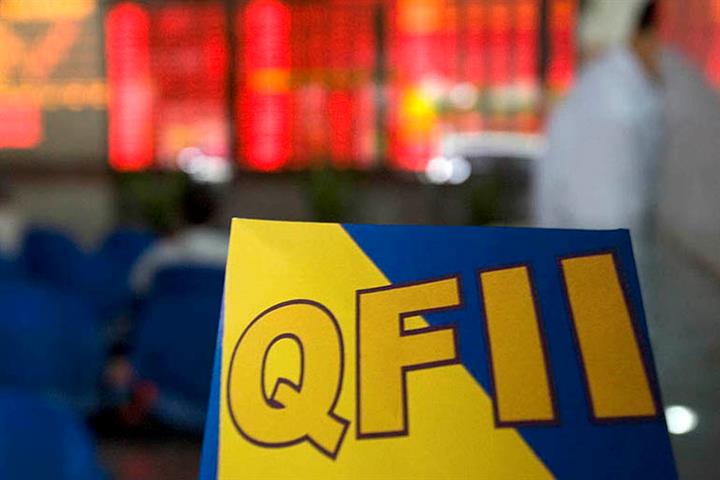 International Investors Are Upbeat on China’s Stock Markets; QFIIs Focus on Four Sectors
International Investors Are Upbeat on China’s Stock Markets; QFIIs Focus on Four Sectors(Yicai Global) April 13 -- Foreign institutional investors are proving more optimistic about China’s stock markets than Chinese investors and those eligible to buy shares in Chinese firms are favoring the four sectors of biomedicine, electronics, non-banking finance and electrical equipment, according to the latest data.
Qualified Foreign Institutional Investors, which are foreign investors licensed to buy Chinese yuan-denominated stocks on the mainland, held positions worth CNY196.4 billion (USD28.6 billion) in 234 stocks as of the end of last year, according to the financial reports of listed companies.
Over half of their investment portfolios by market value last year were in the biomedicine, electronics, non-banking finance and electrical equipment sectors. In the fourth quarter, they cut holdings in 56 stocks, increasing their holdings in 48, bought into 108 new ones and the rest they left unchanged from the third quarter.
"We think the market is reflecting weak recovery at present,” Wang Zonghao, head of equity strategy research at Swiss bankng giant UBS' China arm, told Yicai Global. "However, we remain optimistic on the stock markets."
“China's stock market is bottoming out and the worst is over,” said Jason Hsu, founder of quantitative investment institute Rayliant Global Advisors and chair of the firm's commission of investment decision.
“External risks in the American banking sector will not pose a systematic hit. Judging from the current situation, the Shanghai Stock Exchange 50 Index and CSI 300 Index still have upward space in recovery cycle.”
Zhejiang Tailin Bioengineering was the most popular stock with five QFIIs, including J.P. Morgan, Goldman Sachs and Morgan Stanley, buying into the Hangzhou-based life science company for the first time as of the end of last year. The combined holdings of the QFIIs came to 9.68 percent of Tailin’s equity, making it rank among the top ten companies with overseas investors.
Many foreign investment institutions expect China’s gross domestic product growth in the first quarter and for the whole year to beat expectations, even though concerns over the country's economic recovery intensified last month, when many key indicators such as the purchasing managers’ index and the producer price index dipped.
“Standard Chartered has raised its forecast for China’s economic growth in the first quarter to 4.9 percent from 3.5 percent, and the whole year growth is also likely to be higher than predicted,” Ding Shuang, chief economist for China and North Asia at UK lender Standard Chartered Bank, told Yicai Global.
China’s GDP growth in the first three months may recover significantly as the economic restart drives a rebound in demand and due to the low base number from last year, Ding said.
Editors: Xu Wei, Kim Taylor